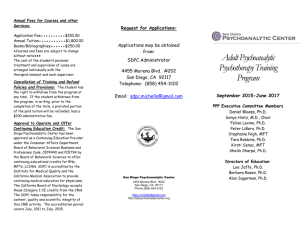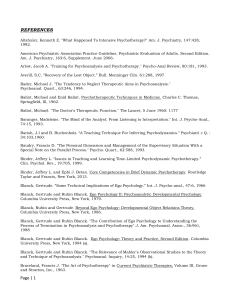intervention freud
advertisement
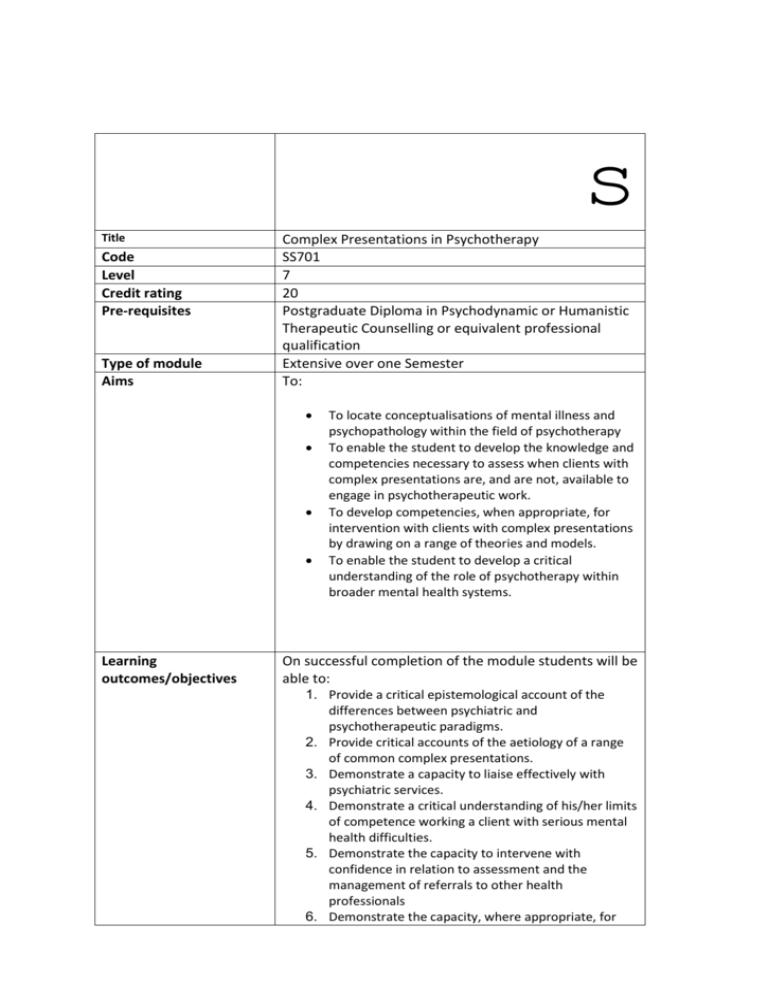
s Title Code Level Credit rating Pre-requisites Type of module Aims Complex Presentations in Psychotherapy SS701 7 20 Postgraduate Diploma in Psychodynamic or Humanistic Therapeutic Counselling or equivalent professional qualification Extensive over one Semester To: Learning outcomes/objectives To locate conceptualisations of mental illness and psychopathology within the field of psychotherapy To enable the student to develop the knowledge and competencies necessary to assess when clients with complex presentations are, and are not, available to engage in psychotherapeutic work. To develop competencies, when appropriate, for intervention with clients with complex presentations by drawing on a range of theories and models. To enable the student to develop a critical understanding of the role of psychotherapy within broader mental health systems. On successful completion of the module students will be able to: 1. Provide a critical epistemological account of the differences between psychiatric and psychotherapeutic paradigms. 2. Provide critical accounts of the aetiology of a range of common complex presentations. 3. Demonstrate a capacity to liaise effectively with psychiatric services. 4. Demonstrate a critical understanding of his/her limits of competence working a client with serious mental health difficulties. 5. Demonstrate the capacity to intervene with confidence in relation to assessment and the management of referrals to other health professionals 6. Demonstrate the capacity, where appropriate, for therapeutic intervention with complex presentations in clients. 7. To assess and differentiate the responses of shock, trauma, bereavement and emotional emergency from severe mental illness. Content Teaching and learning strategies Learning support History of mental health perception with particular reference to culture and gender Assessment Diagnostic criteria Managing referrals Contemporary understandings of developmental psychopathology Disturbances of the boundaries of self Psycho-somatic manifestations Protocols for working with self-harm and suicide Psychosis: psychiatric and psychotherapeutic perspectives Psychopharmacology Working in partnership with other health professionals Resilience and its links to psychotherapeutic intervention For those students without a professional background that has provided them with the experience of being in the presence of clients/patients who have been diagnosed with a severe mental illness, a brief psychiatric placement will need to be undertaken (please refer to the ‘Mental Health Familiarisation Placement’ document). The need or otherwise to undertake such a placement will be considered on an individual basis. Formal inputs of theory and principles supported by guided reading;; Case Discussions; Working inductively from experiences encountered in practice; Students led presentations. Tutor support from module team Peer learning Courses Resources Officer Core Texts: Bott, D and Howard, P (2012), The Therapeutic Encounter: A cross-modality approach, Sage Publications. Briggs, S; Lemma, A; and Couch, W (2008), Relating to Self Harm and Suicide: Psychoanalytic Perspectives on 1 Practice, Routledge. Freud, S. (1914). On Narcissism. The Standard Edition of the Complete Psychological Works of Sigmund Freud, Volume XIV (1914-1916): On the History of the PsychoAnalytic Movement, Papers on Metapsychology and Other Works, 67-102. Kernberg, O.F. (1970). Factors in the Psychoanalytic Treatment of Narcissistic Persona... J. Amer. Psychoanal. Assn., 18:51-85. Kohut, H. (1966). Forms and Transformations of Narcissism. J. Amer. Psychoanal. Assn., 14:243-272. Kernberg, O (2004), Aggressivity, Narcissism, and Selfdestructiveness in the Therapeutic Relationship, Yale University Press. Kohut, H. (1968). The Psychoanalytic Treatment of Narcissistic Personality Disorders—Out... Psychoanal. St. Child, 23:86-113. Kohut, H. (1972). Thoughts on Narcissism and Narcissistic Rage. Psychoanalytic Study of the Child. 27:360 - 400. Laing. RD (1990), The Divided Self: An Existential Study of Sanity and Madness, Penguin. . Leenaars, AA (2004), Psychotherapy with Suicidal People: A Person-centred approach, Wiley-Blackwell. Sperry, L and Carson, J. (1996), Psychopathology and Psychotherapy: From DSM-IV diagnosis to Treatment, London: Routledge. Assessment tasks Brief description of module content and/or aims (maximum 80 The production of a 3,000 word reflexive account which articulates the student's understanding of the role of psychotherapy, including its limitations, in the alleviation of the distress associated with complex presentations. This will take the form of a critical synthesis and be informed by both their psychotherapy practice as well as from the experience of being in the presence of clients/patients who have been diagnosed with a severe mental illness (L.O 1 – 7). By adopting a position of critical realism with regard to mental illness, the module will provide students with the opportunity to locate psychotherapeutic work 2 words) Area examination board to which module relates Module team/authors/coordinato r Semester offered, where appropriate Site where delivered Date of first approval Date of last revision Date of approval of this version Version number Replacement for previous module Field for which module is acceptable and status in that field Course(s) for which module is acceptable and status in that course School home External examiner within historical and contemporary discourses of mental health. Students will gain the knowledge and experience necessary to differentiate between those clients who can respond to psychotherapy and those who will be most effectively helped by other mental health professionals. Students will develop a range of competencies for working with complex presentations that are deemed suitable for psychotherapeutic work. Counselling and Psychotherapy Examination Board Pam Howard (module leader) Lynne Mansfield-Osborne Semester 2 Falmer 18th April 2012 1 MSc Psychotherapy - Mandatory School of Applied Social Science Alex Coren (to 2015) and Ros Sewell (to 2015) 3 4
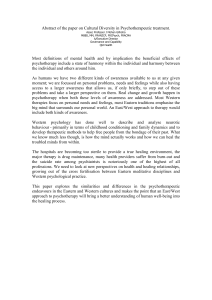

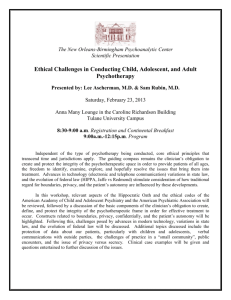
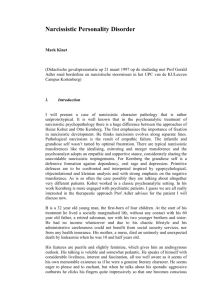
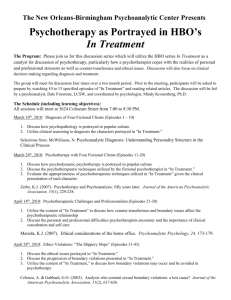

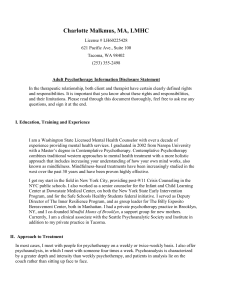
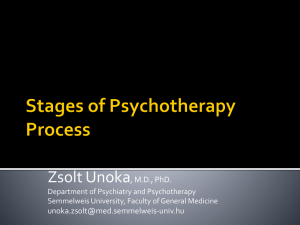
![UW2 - Psychiatric Treatments [2014]](http://s3.studylib.net/store/data/006859622_1-db6167287f6c6867e59a56494e37a7e7-300x300.png)

